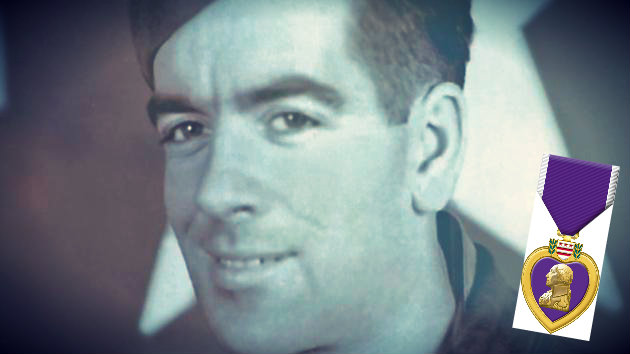WWII Sergeant Rodney Williams finally got what he deserved for his service to the country during the Second World War – a Purple Heart. However, the award came twenty-one years too late — he had been dead for over two decades. In a way, though, he was partly “at fault” for the delayed recognition.
WWII Sergeant Rodney Williams sustained an injury during World War Two, exactly seventy years to the day that his daughter, Lorraine Manatt, accepted the Purple Heart on his behalf.
On March 18, 1945 the WWII sergeant along with eight other comrades boarded a B-17 named “Lady Jane 2” and was flying over the German city of Berlin when they were shot down. Four of the nine crew members were killed on the spot while the five others – including Williams – survived but sustained serious wounds. They spent the rest of the Second World War as POWs.
He was able to return home after the camp he was interred in was liberated by the Soviets.
Williams passed away in 1994 with his death attributed to natural causes.
Lorraine described her father as a quiet man especially when it came to his war experiences. Though he went through a lot, she said, like many other WWII vets, he kept whatever horrors he had witness and gone through during the war to himself.
AS a matter of fact, Williams did not want the recognition, Lorraine added. His attitude coupled with his lost medical records prevented the ceremony from occurring sooner — in time when he could have been the one to accept the military recognition due him.
It was Lorraine who did the work and pushed every button she could just so her father would get the award he so deserved and finally, she was able to see the fruits of her labor.
Wednesday, March 18, Major General Robert D. McMurry Jr. presented the Purple Heart posthumously to WWII Sergeant Rodney Williams in a ceremony held at Los Alamitos Army Airfield. Lorraine accepted it in her father’s behalf.
Lorraine believes that if the award had come while the WWII sergeant was still alive, he wouldn’t have accepted it.
“I don’t know that would make him feel good to be standing there getting an award when other people died. In a way, that’s why I’m glad I can do this for him,” she stated. But then, she pointed out, she feels proud that she is able to honor his father’s legacy – being one of the “Greatest Generation” – by getting him the recognition that was merited to him for long now.
